Marco Berghoff (Karlsruhe Institute of Technology)
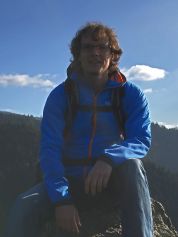 Marco Berghoff received his diploma in mathematics from the University of Paderborn, Germany, with a focus on microlocal analysis, numerics, and physics. He has been a member of the Karlsruhe Institute of Technology, at the Institute for Applied Materials, where he received his PhD in Computational Materials Science. He has years of experience in multiscale modeling and high performance optimization, with the atomistic phase-field crystal model and the mesoscopic phase-field method.
Marco Berghoff received his diploma in mathematics from the University of Paderborn, Germany, with a focus on microlocal analysis, numerics, and physics. He has been a member of the Karlsruhe Institute of Technology, at the Institute for Applied Materials, where he received his PhD in Computational Materials Science. He has years of experience in multiscale modeling and high performance optimization, with the atomistic phase-field crystal model and the mesoscopic phase-field method.
As a postdoctoral researcher in the Simulation Laboratory NanoMicro, he has introduced the framework NAStJA, and currently leads the developments. He is involved in several activities within this project, in particular in the development of large-scale simulations for biological or material science research topics.
Sebastien Binet (LPC)

Sebastien Binet received his PhD in Particle Physics at the Universite Blaise Pascal on Jet Calibration and Analysis Tools in ATLAS. As a post-doc at LBL, he worked on core issues of the Athena control framework for the ATLAS experiment (monitoring, event size reduction, I/O optimization), and started the work on AthenaMP: the multi-process-based parallelization of Athena. He then worked on multithreaded parallelization aspects, scouted for better suited languages and has fallen in love with Go and its elegant approach to concurrency programming.
Enrico Bocchi (CERN)

René Caspart (Karlsruhe Institute of Technology)
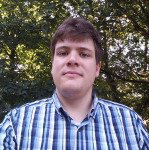 René Caspart received his Master of Science in Physics from the Karlsruhe Institute of Technology specialising in particle physics. He obtained his doctoral degree in particle physics from Karslsruhe Institute of Technology performing analyses of Higgs Boson decays into tau-leptons.
René Caspart received his Master of Science in Physics from the Karlsruhe Institute of Technology specialising in particle physics. He obtained his doctoral degree in particle physics from Karslsruhe Institute of Technology performing analyses of Higgs Boson decays into tau-leptons.
Since his graduation he shifted his focus towards Computing in High Energy Physics, working with the computing team at the Institute for Experimental Particle Physics and Steinbuch Center for Computing.
Ugur Cayoglu (Karlsruhe Institute of Technology)
 Coming soon.
Coming soon.
Simon Danisch (MIT CSAIL)
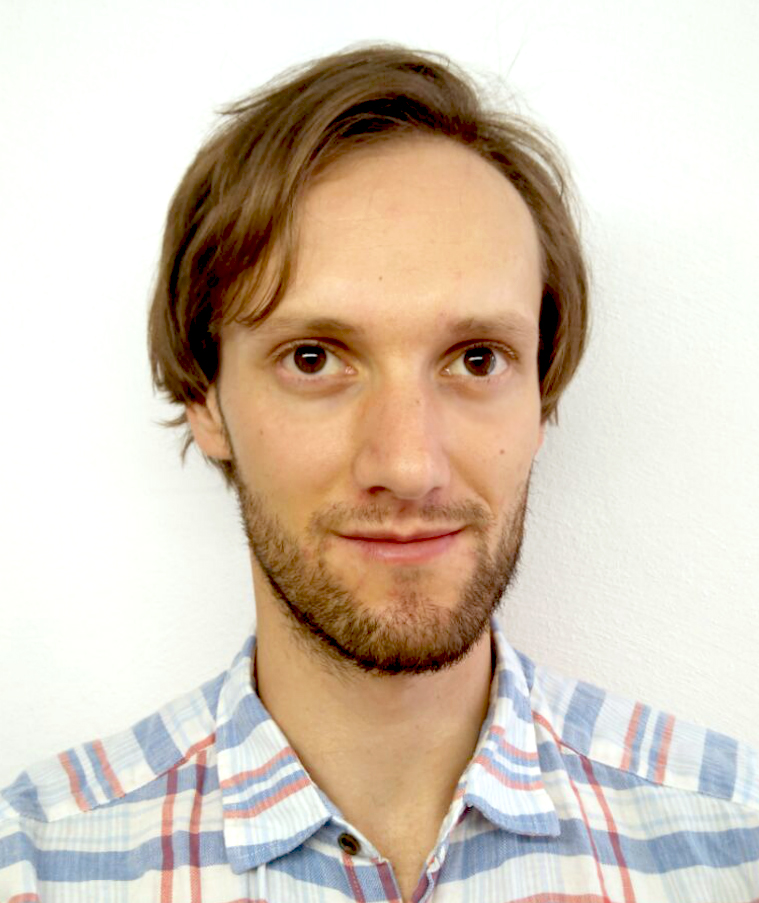 Simon Danisch studied Cognitive Science at the University of Osnabrueck and did a one year internship at the "VW Electronic Research Lab in San Francisco" in Computer Vision and Machine Learning.
Simon Danisch studied Cognitive Science at the University of Osnabrueck and did a one year internship at the "VW Electronic Research Lab in San Francisco" in Computer Vision and Machine Learning.
During that time, Simon focused on the visualization and application of various machine learning models in C++.
The frustration of doing machine learning & interactive visualizations in C++, but finding most popular alternatives to be too slow for the tight performance requirements of 60fps computer vision, Simon quickly became an early adopter of the Julia Language.
Since then, Simon has been driving various parts of the Julia ecosystem as part of the Julia MIT lab.
The most important areas Simon is working on are interactive visualizations with OpenGL, Julia's native GPU packages, GPU kernels for machine learning and improving various dependencies for those projects.
Max Fischer (Karlsruhe Institute of Technology)
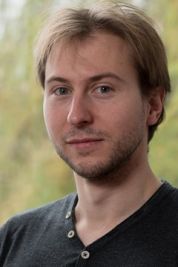 Max Fischer is the representative for the ALICE collaboration at GridKa. At GridKa, he juggles responsibilities for the GridKa HTCondor batch system and XRootD storage services.
Max Fischer is the representative for the ALICE collaboration at GridKa. At GridKa, he juggles responsibilities for the GridKa HTCondor batch system and XRootD storage services.
Previously, he gained his doctoral degree in particle physics with the CMS collaboration; there, his main focus were calibration studies and the development of new middleware solutions for high-performance, distributed data analysis.
Max has a habit to dabble in a broad range of fields, with a focus on algorithms and software development for data analysis. With an affiliation to several overlapping domains, he tends to favour efficiency and manageability over specialization and perfection. When he has to get his hands dirty, his preferred tool of choice is the Python programming language. With years of experience in script and framework development, Max knows the strength and weaknesses of the language all too well.
Manuel Giffels (Karlsruhe Institute of Technology)
 Manuel studied Physics at the RWTH Aachen University and received his diploma working on simulation and software development in context of a tracking detector at a future linear collider in 2005. He obtained his PhD at the RWTH Aachen University in 2009 working on a physics analysis of lepton flavour violation in τ decays at the CMS experiment at CERN. At the same time he became a co-administrator of the RWTH Aachen Grid Computing Center. He then continued his work on Grid Computing and joined the CMS Computing Project as a software developer in the Data Management & Workload Management group. In 2011 he got an applied physics fellowship at CERN. Since 2014 he is working at KIT being Computing & Development Team Leader of the CMS group.
Manuel studied Physics at the RWTH Aachen University and received his diploma working on simulation and software development in context of a tracking detector at a future linear collider in 2005. He obtained his PhD at the RWTH Aachen University in 2009 working on a physics analysis of lepton flavour violation in τ decays at the CMS experiment at CERN. At the same time he became a co-administrator of the RWTH Aachen Grid Computing Center. He then continued his work on Grid Computing and joined the CMS Computing Project as a software developer in the Data Management & Workload Management group. In 2011 he got an applied physics fellowship at CERN. Since 2014 he is working at KIT being Computing & Development Team Leader of the CMS group.
Markus Götz (Karlsruhe Institute of Technology)
 Markus Götz received his Bachelors and Masters degree in Software Engineering from the University of Potsdam in 2010 and 2014 respectively. Afterwards, he has been with the Research Center Jülich and the University of Iceland, from which Markus obtained his PhD degree in Computational Engineering for his works on parallel data-analysis algorithms on high-performance computing (HPC) systems.
Markus Götz received his Bachelors and Masters degree in Software Engineering from the University of Potsdam in 2010 and 2014 respectively. Afterwards, he has been with the Research Center Jülich and the University of Iceland, from which Markus obtained his PhD degree in Computational Engineering for his works on parallel data-analysis algorithms on high-performance computing (HPC) systems.
Since the beginning of 2018 Markus is with the Steinbuch Centre for Computing (SCC) at the Karlsruhe Institute of Technology (KIT). There, he manages the Helmholtz Analytics Framework project, a german-wide initiative with the aim of developing the data sciences in the Helmholtz Association. His research topics include applied machine learning, scalable data analysis frameworks and parallel algorithms.
Andreas Herten (FZ Jülich)
 Andreas made his PhD as an experimental particle physicist at Forschungszentrum Jülich/Ruhr University Bochum. He investigated the application of graphics processing units (GPUs) for track reconstruction in the online event selection system of the PANDA experiment. After graduating he joined the NVIDIA Application Lab of the Supercomputing Centre of Forschungszentrum Jülich, where he enables scientific applications for GPUs and improves their performances.
Andreas made his PhD as an experimental particle physicist at Forschungszentrum Jülich/Ruhr University Bochum. He investigated the application of graphics processing units (GPUs) for track reconstruction in the online event selection system of the PANDA experiment. After graduating he joined the NVIDIA Application Lab of the Supercomputing Centre of Forschungszentrum Jülich, where he enables scientific applications for GPUs and improves their performances.
Uwe L. Korn (Blue Yonder GmbH)
 After completing his master's in machine learning and high performance computing, Uwe joined the RetailTec company Blue Yonder as a Data Scientist. In addition to building ML models, he got interested in the pipelines that bring the data to and from these models. Nowadays he focuses on the data engineering infrastructure that is needed to provide the building blocks to bring machine learning models into production. As part of his work to provide an efficient data interchange he became a core committer to the Apache Parquet and Apache Arrow projects and is an active user of Pandas and Dask.
After completing his master's in machine learning and high performance computing, Uwe joined the RetailTec company Blue Yonder as a Data Scientist. In addition to building ML models, he got interested in the pipelines that bring the data to and from these models. Nowadays he focuses on the data engineering infrastructure that is needed to provide the building blocks to bring machine learning models into production. As part of his work to provide an efficient data interchange he became a core committer to the Apache Parquet and Apache Arrow projects and is an active user of Pandas and Dask.
Eileen Kühn (Karlsruhe Institute of Technology)
 Coming soon.
Coming soon.
Mario Lassnig (CERN)
 Dr. Mario Lassnig has been working as a Software Engineer at the European Organisation for Nuclear Research (CERN) since 2006. Within the ATLAS Experiment, he is responsible for many aspects of large-scale distributed data management, database applications, as well as descriptive and predictive analytics for large data samples.
Dr. Mario Lassnig has been working as a Software Engineer at the European Organisation for Nuclear Research (CERN) since 2006. Within the ATLAS Experiment, he is responsible for many aspects of large-scale distributed data management, database applications, as well as descriptive and predictive analytics for large data samples.
In his previous life, he developed mobile navigation software for public transportation in Vienna at Seibersdorf Research, as well as cryptographic smartcard applications for access control at the University of Klagenfurt. He holds a Master's degree in Computer Science from the University of Klagenfurt, and a doctoral degree in Computer Science from the University of Innsbruck.
Milosch Meriac (Bitmanufactory LTD)

Milosch Meriac is involved in hardware, embedded software, protocols and security projects around the Internet of Things and considers himself a white-hat hacker.
Milosch Meriac has over 20 years of professional experience in embedded programming, hardware development and the information security business. He enjoys breaking things, working on microcontroller security and improving IoT security.
His focus is on hardware design, embedded systems, RF designs, active and passive RFID hardware development, custom-tailoring of embedded Linux hardware platforms, real time systems, IT-security, hardware & software reverse engineering and security evaluations of embedded systems. [1]
Servesh Muralidharan (CERN)
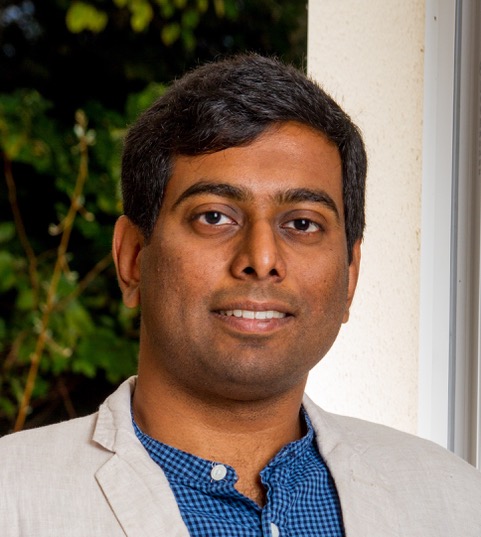 Dr. Servesh Muralidharan is a computer scientist working as a fellow at CERN IT department. He works on investigating optimisations suitable for HEP computations performed by the various experiments at CERN. His research focuses predominantly on performance characterisation and features exploration of modern many core architectures and how they could help improve overall compute efficiency. Dr. Muralidharan completed his PhD in computer science from Trinity College Dublin in 2015 followed by a Postdoc at ICHEC, Ireland’s national supercomputing centre before starting his fellowship at CERN.
Dr. Servesh Muralidharan is a computer scientist working as a fellow at CERN IT department. He works on investigating optimisations suitable for HEP computations performed by the various experiments at CERN. His research focuses predominantly on performance characterisation and features exploration of modern many core architectures and how they could help improve overall compute efficiency. Dr. Muralidharan completed his PhD in computer science from Trinity College Dublin in 2015 followed by a Postdoc at ICHEC, Ireland’s national supercomputing centre before starting his fellowship at CERN.
Sebastian Neubauer (Blue Yonder GmbH)
 Sebastian joined Blue Yonder as a Data Scientist after completing his PhD in physics. One of the first things Sebastian learned on the job is that it takes a lot more than just software and algorithms to deliver value to customers. Realizing this, he focused his efforts on configuration management and application life cycle management as well as the design, development and operation of distributed systems. He is now a Senior Data Scientist at Blue Yonder and contributed already in nearly all layers, from infrastructure to algorithms.
Sebastian joined Blue Yonder as a Data Scientist after completing his PhD in physics. One of the first things Sebastian learned on the job is that it takes a lot more than just software and algorithms to deliver value to customers. Realizing this, he focused his efforts on configuration management and application life cycle management as well as the design, development and operation of distributed systems. He is now a Senior Data Scientist at Blue Yonder and contributed already in nearly all layers, from infrastructure to algorithms.
Jon Ander Novella (Uppsala Universitet)
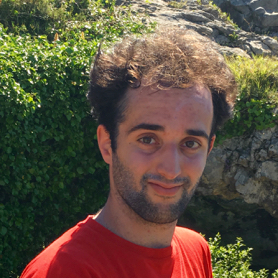 With a background in Computer Engineering and Bioinformatics, Jon Ander works at the Pharmaceutical Bioinformatics group as a Research Assistant. He is doing R&D about workflow engines and infrastructures for e-Science. [2]
With a background in Computer Engineering and Bioinformatics, Jon Ander works at the Pharmaceutical Bioinformatics group as a Research Assistant. He is doing R&D about workflow engines and infrastructures for e-Science. [2]
Oliver Oberst (IBM)
 Oliver Oberst made his PhD in particle physics at the KIT focused on analysis of QCD data from the CMS Experiment and development of tools to manage virtualized worker nodes. After two years as a post doc at KIT, managing the CMS Tier 1 contact team for GridKa as-well as coordinating the German CMS grid computing group (DCMS), Oliver joint IBM as an Industry Solution Architect. Since then he designs solutions for research and higher-education customers with emphasis on technical computing (HPC, HTC), big data analytics and cloud computing.
Oliver Oberst made his PhD in particle physics at the KIT focused on analysis of QCD data from the CMS Experiment and development of tools to manage virtualized worker nodes. After two years as a post doc at KIT, managing the CMS Tier 1 contact team for GridKa as-well as coordinating the German CMS grid computing group (DCMS), Oliver joint IBM as an Industry Solution Architect. Since then he designs solutions for research and higher-education customers with emphasis on technical computing (HPC, HTC), big data analytics and cloud computing.
Ines Reinartz (Karlsruhe Institute of Technology)
 Ines Reinartz received her Bachelor's degree in particle physics and her Master's degree with a focus on biophysics at the Karlsruhe Institute for Technology in Germany. Currently she is working on her PhD in Physics in the Multiscale Biomolecular Simulation group at the Steinbuch Centre for Computing.
Ines Reinartz received her Bachelor's degree in particle physics and her Master's degree with a focus on biophysics at the Karlsruhe Institute for Technology in Germany. Currently she is working on her PhD in Physics in the Multiscale Biomolecular Simulation group at the Steinbuch Centre for Computing.
Her research focuses on modeling of structural transitions of proteins by including experimental data from e.g. FRET and SAXS measurements into molecular dynamics simulations.
David Smith (CERN)

Raimund Specht (genua GmbH)
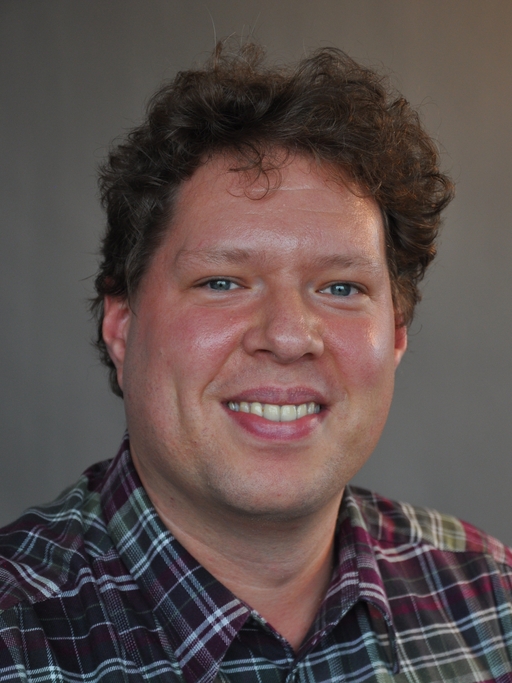 Raimund studied computer science at the University of Ulm. He works as a quality assurance engineer at genua, a German company focusing on securing critical infrastructures of public authorities and industry. Besides this, he is responsible for the IT security workshop "genulab", a hands-on training taking place several times a year. The participants act like real hackers and try to compromise and "pwn" the systems of a fictitious company in a simulated environment. Raimund also likes to give live hacking talks and demos at trade fairs and other events.
Raimund studied computer science at the University of Ulm. He works as a quality assurance engineer at genua, a German company focusing on securing critical infrastructures of public authorities and industry. Besides this, he is responsible for the IT security workshop "genulab", a hands-on training taking place several times a year. The participants act like real hackers and try to compromise and "pwn" the systems of a fictitious company in a simulated environment. Raimund also likes to give live hacking talks and demos at trade fairs and other events.
Todd Tannenbaum (University of Wisconsin-Madison)
 Todd Tannenbaum is a Researcher in the Center for High Throughput Computing at the University of Wisconsin-Madison (UW-Madison) Department of Computer Sciences with over 19 years of experience developing production distributed computing environments. He directs the development staff and serves as the Technical Lead for the HTCondor Project, a distributed computing research group that produces the award-winning HTCondor software. Previous to his involvement with HTCondor, Todd served as the Director of the Model Advanced Facility, a high-performance computing center in the UW-Madison College of Engineering, and also as a Technology Editor for Network Computing magazine. He received B.S. and M.S. degrees in computer science from UW-Madison.
Todd Tannenbaum is a Researcher in the Center for High Throughput Computing at the University of Wisconsin-Madison (UW-Madison) Department of Computer Sciences with over 19 years of experience developing production distributed computing environments. He directs the development staff and serves as the Technical Lead for the HTCondor Project, a distributed computing research group that produces the award-winning HTCondor software. Previous to his involvement with HTCondor, Todd served as the Director of the Model Advanced Facility, a high-performance computing center in the UW-Madison College of Engineering, and also as a Technology Editor for Network Computing magazine. He received B.S. and M.S. degrees in computer science from UW-Madison.
Oskar Taubert (Karlsruhe Institute of Technology)
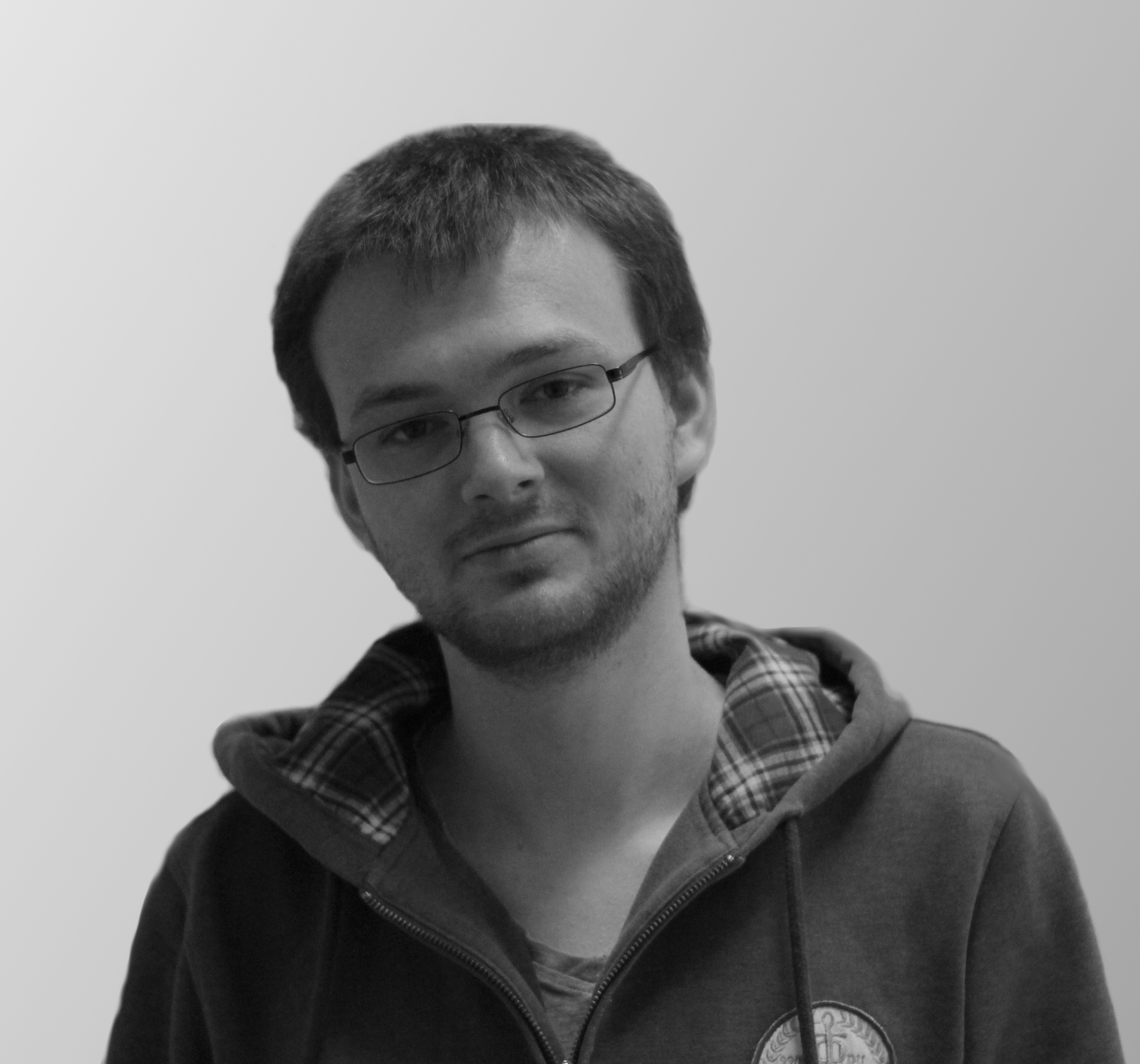
His research interests include machine learning on Co-Evolution of biological macromolecules.
Thorsten Zirwes (Karlsruhe Institute of Technology)
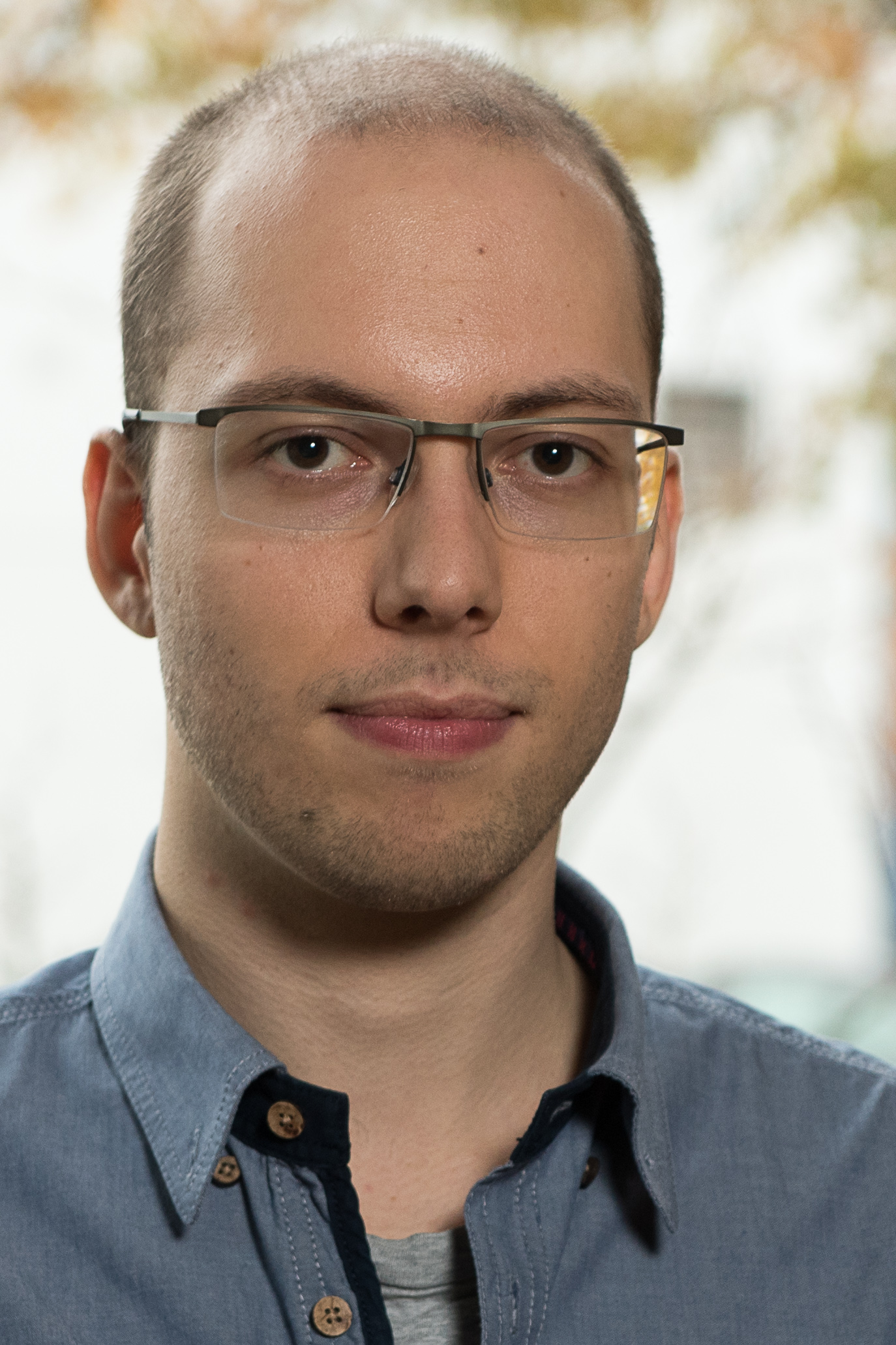 Thorsten Zirwes is currently a Ph.D. student at the Engler-Bunte-Institute (Combustion Technology) in cooperation with the Steinbuch Centre for Computing at KIT. In his work, he performs direct numerical simulations (DNS) of turbulent combustion processes to investigate the interaction between turbulent flow structures and flame properties. In order to perform DNS on high performance computing (HPC) clusters, he also works on performance optimization of the CFD tool "OpenFOAM". Thorsten Zirwes got his Master's degree in Chemical Engineering and Process Engineering at KIT in 2016.
Thorsten Zirwes is currently a Ph.D. student at the Engler-Bunte-Institute (Combustion Technology) in cooperation with the Steinbuch Centre for Computing at KIT. In his work, he performs direct numerical simulations (DNS) of turbulent combustion processes to investigate the interaction between turbulent flow structures and flame properties. In order to perform DNS on high performance computing (HPC) clusters, he also works on performance optimization of the CFD tool "OpenFOAM". Thorsten Zirwes got his Master's degree in Chemical Engineering and Process Engineering at KIT in 2016.
References
[1] https://www.meriac.com
[1] https://pharmb.io/people/jon/
